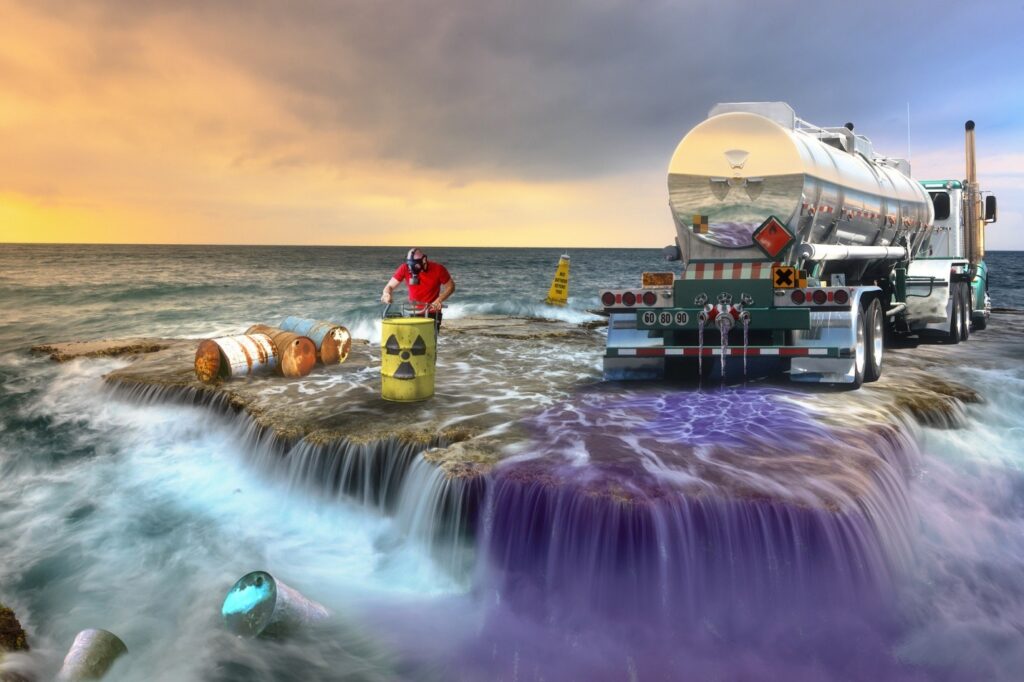An Unbiased View of Reclaim Waste
An Unbiased View of Reclaim Waste
Blog Article
Some Known Details About Reclaim Waste
Table of ContentsThe Basic Principles Of Reclaim Waste Getting The Reclaim Waste To WorkLittle Known Facts About Reclaim Waste.Things about Reclaim WasteThe Single Strategy To Use For Reclaim Waste
Through proper fluid waste monitoring, firms can lower energy-intensive treatment procedures and disposal prices. By following a system for managing fluid waste, firms can prevent pricey fines and charges and prevent negative publicity.(https://www.imdb.com/user/ur191403836/?ref_=nv_usr_prof_2)Accumulate depictive examples from various factors within the waste stream to make sure accuracy. Conduct periodic testing to track any kind of adjustments in the structure. Maintain comprehensive records of characterization for future referral and conformity purposes. Liquid waste, specifically hazardous ones, positions considerable threats during this action. Correct treatments minimize spills, leaks, and other mishaps that could hurt the workers and the public.

Sanitation (e.g., chlorination, ultraviolet light, ozonation) and nutrient elimination (e.g., denitrification and phosphorus elimination) are recommended under stringent policies. Numerous firms breached several fluid waste disposal guidelines in recent years.
An Unbiased View of Reclaim Waste

are utilized by sectors that generate big quantities of low-toxicity fluid waste. Shallow containers contain fluid waste that is permitted to vaporize through all-natural procedures. The residue left can be disposed of in garbage dumps. entails melting liquid waste at high temperature levels and converting it right into gas and ash. This type of disposal undergoes rigorous ecological guidelines due to potentially dangerous exhausts.
The findings ought to be documented, assessed, and stored not just for entry to governing authorities but also for making improvements in the future. Share information with relevant stakeholders (e.g., staff members, regulative federal government firms, and nearby neighborhoods) to preserve transparency and accountability.
Understanding these can assist them efficiently manage their procedures and lessen their environmental effect. Business that can't spend in centers must think about working together with the public field for better solutions.
The Definitive Guide to Reclaim Waste
By applying detailed monitoring systems that include therapy and reusing strategies, regular surveillance, risk analyses, and adherence to local and government guidelines, industrial facilities can contribute to the protection of groundwater materials, ensuring their schedule for future generations (liquid waste disposal melbourne). Allow's dive right into the significance of efficient fluid waste management in the industrial field, concentrating on its effects for securing groundwater sources
The contamination of groundwater sources due to inappropriate fluid waste administration in the commercial sector has significant repercussions for human health, agriculture, and the environment as a whole. Some of the prospective effects brought on by such air pollution consist of: Infected Alcohol consumption Water Materials: As groundwater provides a considerable section of our drinking water, pollution from industrial activities can result in dangerous chemicals and microbes entering our water supply, posing health risks for read the article humans.
Reduced Agricultural Productivity: Farming counts greatly on groundwater for irrigation; as a result, polluted water can hinder crop returns, infect farming items, and affect food safety and security. Provided the value of protecting groundwater sources, it is vital for businesses to take an aggressive position in managing their fluid waste sensibly and protecting against air pollution.
8 Simple Techniques For Reclaim Waste
Fluid waste can contaminate land and pollute waters. Info about managing and keeping fluid waste, responding to spills and reducing fluid waste is readily available in the complying with fact sheets and advice:.
Water, the significance of life, is under consistent danger from contamination. The role of waste monitoring professionals in securing this valuable source can not be overstated. Their solutions include: Septic container and oil trap cleansing: Vital for protecting against hazardous toxins from entering our water supply. Polluted water and infected effluent management: Ensuring that unsafe liquids are securely gotten rid of and treated prior to they can harm our water sources.
Thus, integrating sustainable liquid waste management into economic planning improves financial security and protects the setting, demonstrating the value of this approach. In final thought, adopting expert liquid waste monitoring techniques is important for guaranteeing a lasting future, shielding our environment and securing the wellness of future generations.
When it pertains to getting rid of waste, adhering to appropriate treatments is essential for a plethora of reasons. Appropriate garbage disposal is not nearly sanitation; it's about making sure the well-being of our environment, health and wellness, and the reliable use of resources. Comprehending the significance of reliable waste administration can help all of us add to a healthier, cleaner world.
Reclaim Waste for Dummies
Efficient waste management aids maintain clean roads and public rooms, decreasing the aesthetic impact of litter and making sure that waste does not damage wildlife. When waste is not thrown away properly, it can cause pollution, where unsafe materials can leach right into the dirt, water supply, and the air, producing long-lasting ecological problems.
Report this page